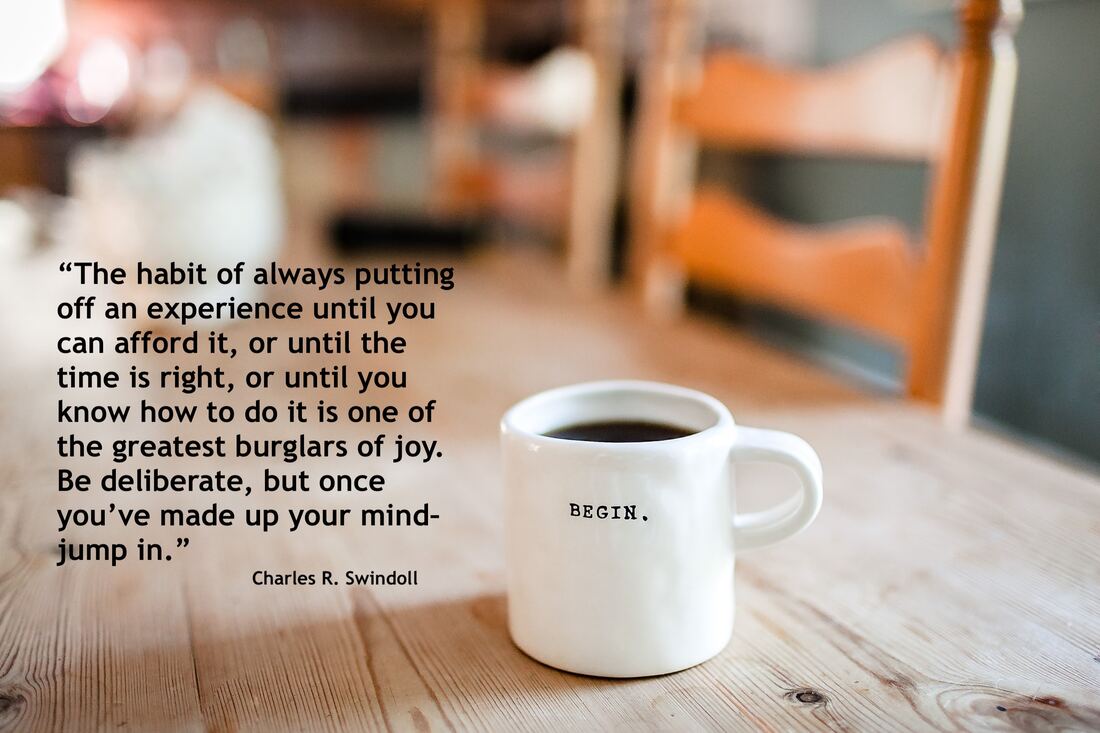I get energy by following through and competing a task I have committed to. Strangely, it's often not about the result, but more about the discipline I used to tackle and finish something. It makes me feel good – and conversely, the inertia created by putting something off is an incredible energy thief, and strongly demotivating.
So why is it so hard for many of us to start and finish tasks? And why is it that we focus on checking our emails and Facebook page, tidy the room, wash the dishes – in fact anything except actually start what we set out to accomplish? If we get energy and feel good from completing something, why aren’t we doing just that . . . ?
Procrastinators tend to think in the short term – and so tend to avoid tasks that are immediately unappealing, even though the completion of those tasks may bring significant future benefits. They also tend to be less into planning – which doesn’t mean they can’t plan, just that they don’t like it.
There may also be a physiological reason why some of some of us tend to procrastinate more than others, and that relates to the release of dopamine (a neurotransmitter that regulates behaviour). There is a gene that, depending on which version we have, determines our baseline levels of dopamine. If we have low levels, it is often only stress that can boost the release of extra dopamine – which might help explain why procrastinators often need to leave things until just before a deadline when the stress kicks in . . .
I have just read an article entitled “How to stop procrastinating by using the two-minute rule”. The idea behind the rule, as outlined in the book Atomic Habits by James Clear, is that nearly every habit can be scaled down into a two-minute version. It’s all about starting a habit – and so if you want to do some yoga, your strategy is to get out your mat and lay it out on the floor. Or if your aim is to run five km, your strategy is to put your running gear on.
The idea is that you can’t manufacture a perfect result from the start – the key is to show up. By making the first two minutes easy, it becomes a ritual and from there it’s all much easier. I mean what are you going to do when you are in your running gear, apart from going for a run . . .
I like this quote by Norman Vincent Peale: “The really happy people are those who have broken the chains of procrastination, those who find satisfaction in doing the job at hand. They’re full of eagerness, zest, productivity. You can be, too.”
So why is it so hard for many of us to start and finish tasks? And why is it that we focus on checking our emails and Facebook page, tidy the room, wash the dishes – in fact anything except actually start what we set out to accomplish? If we get energy and feel good from completing something, why aren’t we doing just that . . . ?
Procrastinators tend to think in the short term – and so tend to avoid tasks that are immediately unappealing, even though the completion of those tasks may bring significant future benefits. They also tend to be less into planning – which doesn’t mean they can’t plan, just that they don’t like it.
There may also be a physiological reason why some of some of us tend to procrastinate more than others, and that relates to the release of dopamine (a neurotransmitter that regulates behaviour). There is a gene that, depending on which version we have, determines our baseline levels of dopamine. If we have low levels, it is often only stress that can boost the release of extra dopamine – which might help explain why procrastinators often need to leave things until just before a deadline when the stress kicks in . . .
I have just read an article entitled “How to stop procrastinating by using the two-minute rule”. The idea behind the rule, as outlined in the book Atomic Habits by James Clear, is that nearly every habit can be scaled down into a two-minute version. It’s all about starting a habit – and so if you want to do some yoga, your strategy is to get out your mat and lay it out on the floor. Or if your aim is to run five km, your strategy is to put your running gear on.
The idea is that you can’t manufacture a perfect result from the start – the key is to show up. By making the first two minutes easy, it becomes a ritual and from there it’s all much easier. I mean what are you going to do when you are in your running gear, apart from going for a run . . .
I like this quote by Norman Vincent Peale: “The really happy people are those who have broken the chains of procrastination, those who find satisfaction in doing the job at hand. They’re full of eagerness, zest, productivity. You can be, too.”
